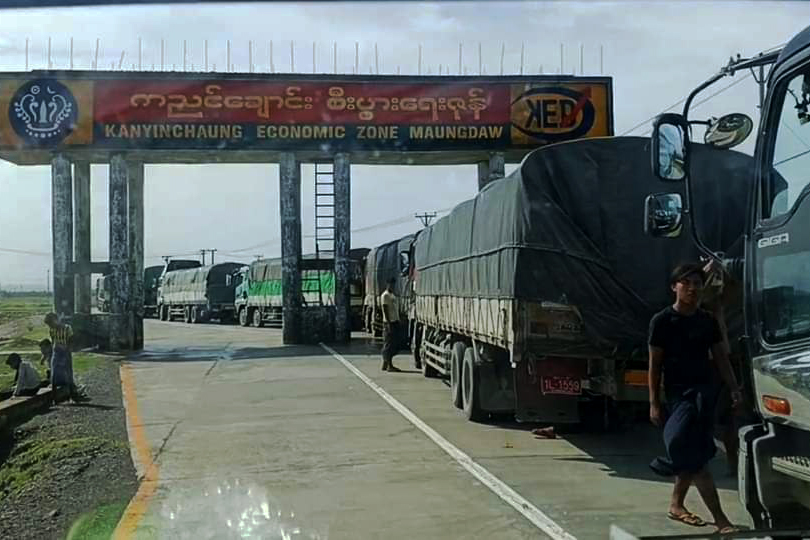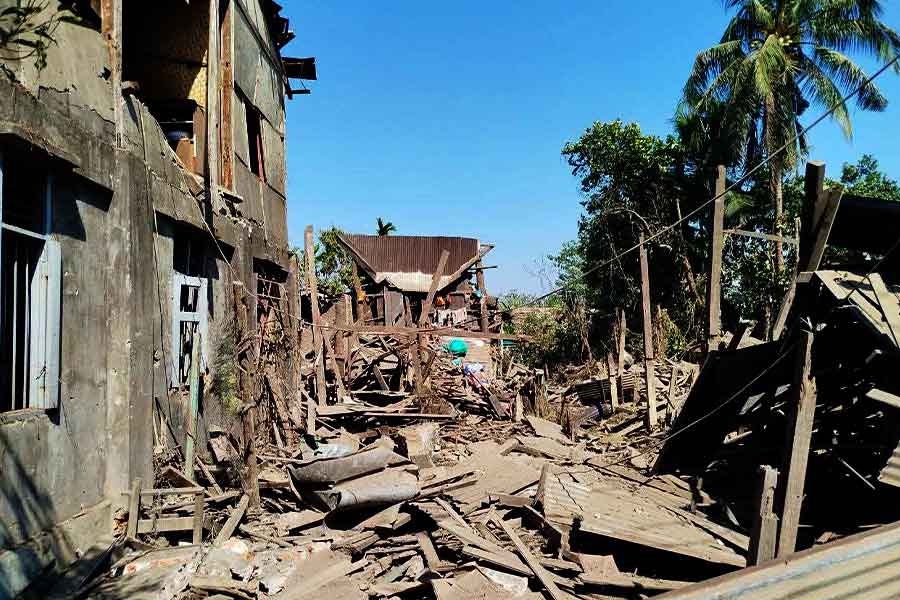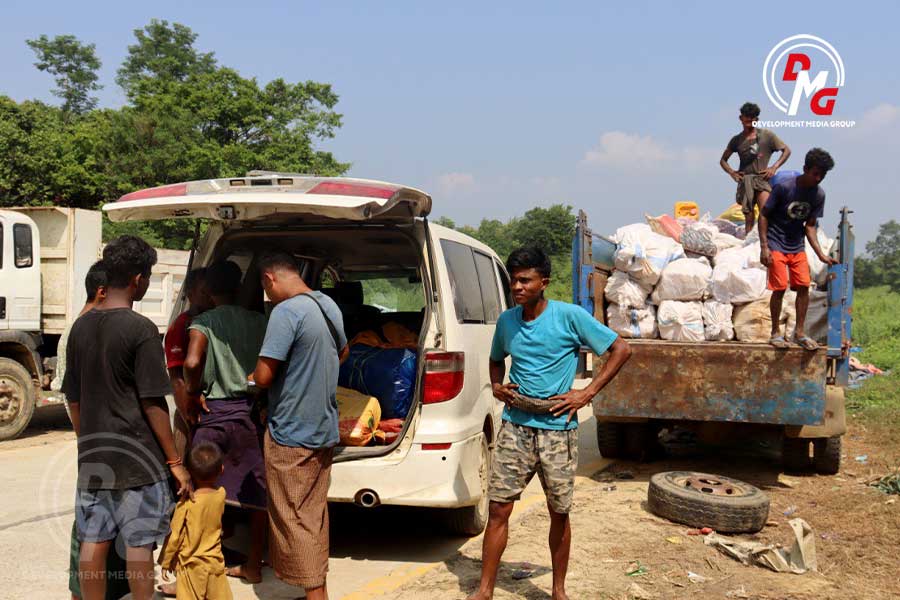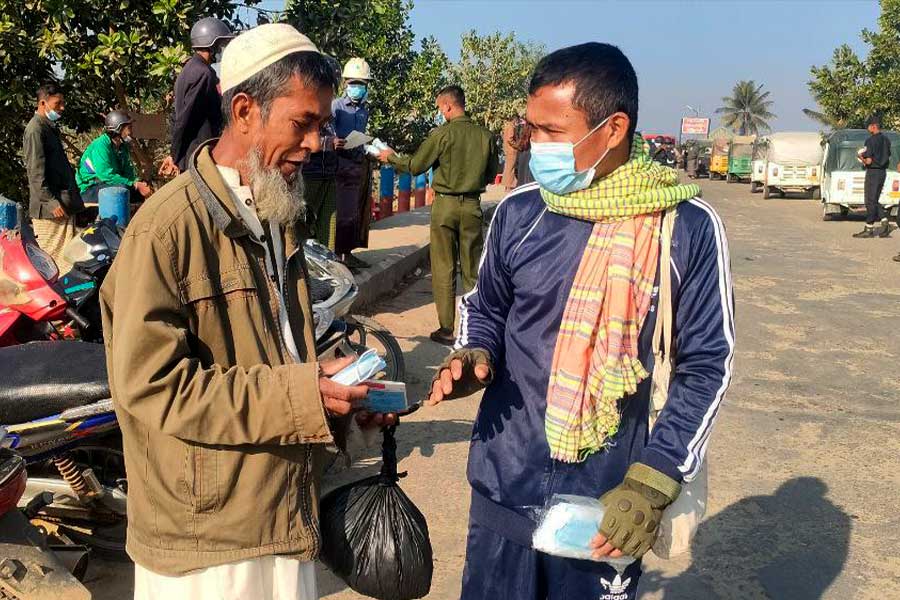Junta policy change blamed for drop in border trade with Bangladesh
Local merchants have blamed a decline in Myanmar’s border trade with Bangladesh through the Maungdaw border trade camp, which earns US dollar income for the country, on recent changes in the junta’s trade policy.
13 Oct 2023

DMG Newsroom
13 October 2023, Maungdaw
Local merchants have blamed a decline in Myanmar’s border trade with Bangladesh through the Maungdaw border trade camp, which earns US dollar income for the country, on recent changes in the junta’s trade policy.
The junta’s Ministry of Commerce now requires that agricultural and aquatic products be exported only via the Sittwe border trade camp, resulting in declining trade with Bangladesh through the Maungdaw trade camp.
The change in policy has meant that as of September, rice, broken rice, beans and pulses, sesame, peanuts, onions and aquatic products cannot be exported to Bangladesh through Maungdaw.
“The decline in Myanmar’s trade with Bangladesh via the Maungdaw border trade camp is attributed to the junta’s restrictions,” said a border trader in Maungdaw who did not want to be named.
Previously, three to five cargo boats left the Maungdaw border trade camp for Bangladesh daily, but now only one cargo vessel departs for Bangladesh every three days, according to local traders.
Bangladesh’s Sonali Bank has frozen the accounts of two of Myanmar’s state-owned banks — Myanma Foreign Trade Bank and Myanma Investment and Commercial Bank — that were sanctioned by the United States.
In apparent response to Bangladesh’s actions, the junta moved to significantly curtail trade activity through the Maungdaw border trade facility. The junta’s Department of Trade issued an order dated September 1 and in effect as of September 4, stating that traders wishing to export agricultural and aquatic goods to Bangladesh must use the Sittwe border trade camp.
U Myint Thura, director-general of the Department of Trade and spokesperson for the Ministry of Commerce, told Myanmar Now in September that the restrictions were intended to deter possible smuggling after Bangladesh’s state-owned bank froze two Myanmar banks’ accounts and trade payments.
The junta’s trade policy changes have affected local traders in Maungdaw, businessmen in mainland Myanmar, and boat operators and cargo workers at the Maungdaw trade camp.
The Maungdaw border trade camp had primarily exported a variety of freshwater and saltwater fish.
Rohu coming from mainland Myanmar in refrigerated trucks also declines in quality when exported through the Sittwe border trade camp.
“Bangladeshi merchants know that some goods exported through the Sittwe border trade camp are of poor quality when they reach Bangladesh,” said U Aung Myint Thein, chairman of the Maungdaw border trade association. “It is an undeniable fact that the salamander products sent from the Sittwe border trade camp have lower quality than those sent through the Maungdaw border trade camp by the time they reach Bangladesh.”
Myanmar exported US$1.425 million worth goods to Bangladesh through the Maungdaw border trade camp in September.
















.jpg)
